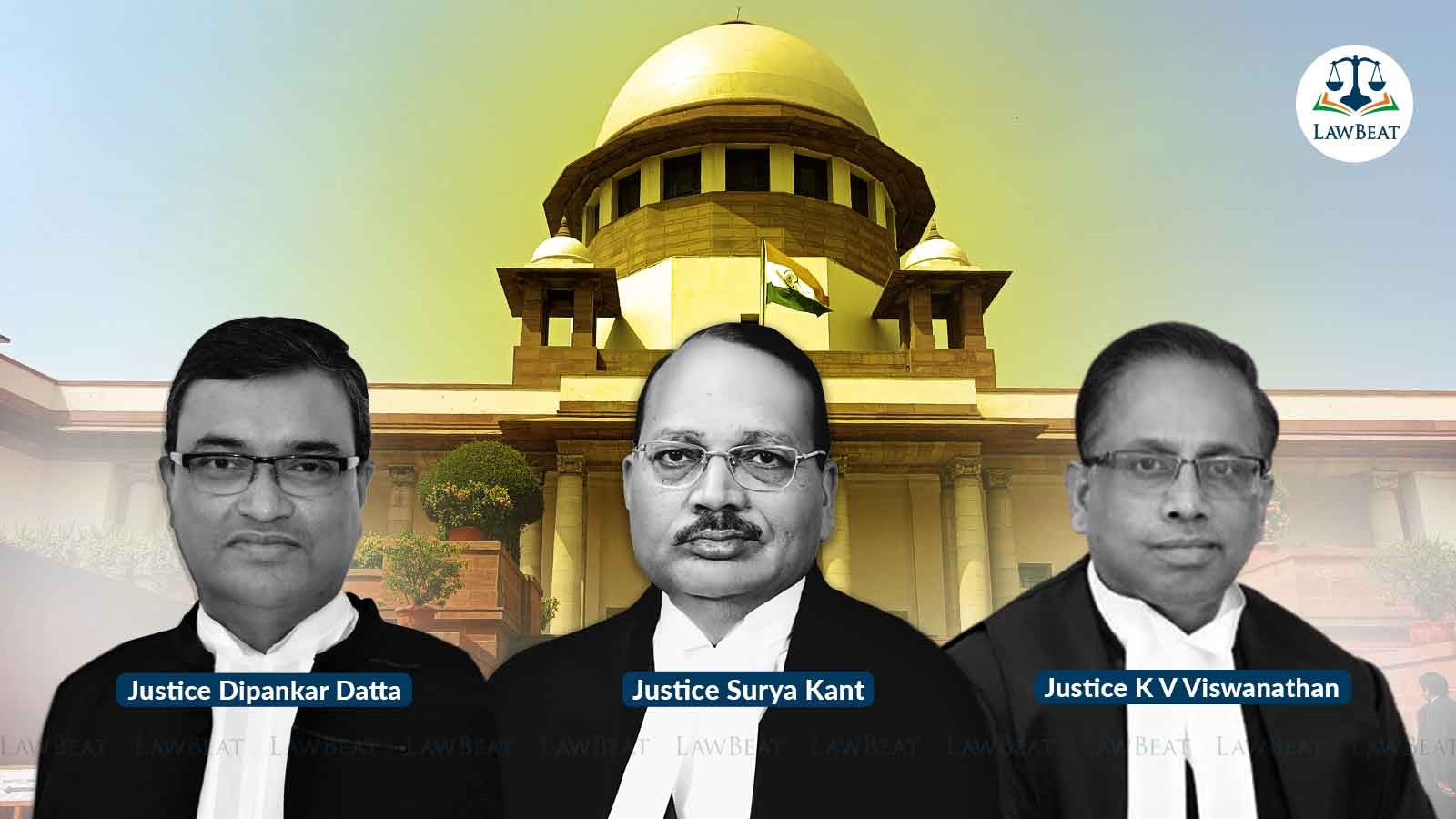SC Upholds Disqualification of Candidate with More Than 2 Children for Constable Post

Court relied upon a previous ruling which held that such a rule is non-discriminatory for its objective to promote family planning
The Supreme Court has declined to interfere with the Rajasthan Service Rules which disqualified a candidate from public employment for having more than two children, relying upon a previous ruling which held that such a rule is non-discriminatory for its objective to promote family planning.
A bench of Justices Surya Kant, Dipankar Datta, and K V Vishwanathan dismissed a civil appeal filed by Ramji Lal Jat against the Rajasthan High Court's judgment of October 12, 2022, which had held that the subject rule fell within the realm of policy and did not warrant any interference.
The appellant was an ex-serviceman, who retired from defence services on January 31, 2017.
He applied for the post of Police Constable in the Rajasthan Police on May 25, 2018, but his candidature was rejected in light of Rule 24(4) of the Rajasthan Police Subordinate Service Rules, 1989, on the ground that since he had more than two children after June 01, 2002, he stood disqualified for public employment under the State, as per the Rajasthan Various Service (Amendment) Rules, 2001.
The Rules, inter alia, provided that “no candidate shall be eligible for appointment to the service who has more than two children on or after June 01, 2002.”
Having heard the counsel for the appellant at a considerable length and carefully perused the material placed on record, the bench pointed out a somewhat similar provision, which was introduced as an eligibility condition to contest Panchayat elections, had been upheld by the high court in 'Javed and others Vs State of Haryana and others' (2003).
"This court held that the classification, which disqualifies candidates for having more than two living children, was non-discriminatory and intra-vires the Constitution, since the objective behind the provision was to promote family planning," the bench said.
In the 2003 judgment, the top court had also said, "Assuming the practice of having more wives than one or procreating more children than one is a practice followed by any community or group of people the same can be regulated or prohibited by legislation in the interest of public order, morality and health or by any law providing for social welfare and reform which the impugned legislation clearly does. If anyone chooses to have more living children than two, he is free to do so under the law as it stands now but then he should pay a little price and that is of depriving himself from holding an office in Panchayat in the State of Haryana. There is nothing illegal about it and certainly no unconstitutionality attaches to it".
The appellant further contended that in addition to 109 sets of Statutory Service Rules, where that eligibility condition had been introduced, there were Rules regarding the absorption of ex-servicemen where the condition of not having more than two children had not been specified.
"Assuming it to be correct, we are of the view that such a plea does not advance the appellant’s case. It is undisputed that the appellant applied for recruitment to the post of Constable in Rajasthan Police and such recruitment is governed by the Rajasthan Police Subordinate Service Rules, 1989. These 1989 Rules have been specifically enlisted at Serial No 104 of the Schedule appended to the 2001 Rules," the bench said.
The bench, thus, held that it did not find any ground to interfere with the view taken by the high court.
Case Title: Ramji Lal Jat Vs The State of Rajasthan & Ors
